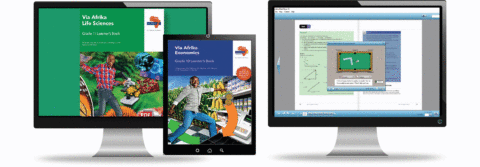Sunday Times Skills
By The Numbers
The first black chartered accountant in South Africa, Wiseman Lumkile Nkuhlu, qualified in 1976 and became president of the South African Institute of Chartered Accountants (Saica) in 1998. Today, the picture in the financial services sector, and the myriad challenges he faced, looks very different. Estimations indicate that black Africans occupy 42 per cent of jobs in the sector, according to the Sector Education and Training Authority (SETA) for the Finance, Accounting, Management Consulting and Other Financial Services sector (FASSET).
“The black demographic (black African, coloured and Indian) occupies 63 per cent of jobs in the sector, while the white demographic occupies 35 per cent. Not only has the number of black people employed in the sector vastly increased, but we’ve also seen empowerment in top occupational categories, leadership and management – 2020 numbers show that most employees in the finance and accountancy sector are women (56 per cent) and that women occupy 48 per cent of managerial positions,” says Ayanda Mafuleka, CEO.
But there is still a long way to go. When it comes to the accountancy profession alone, the numbers differ significantly. Of the 50 996 accountants registered with Saica, only 7 740 are black and only 19 979 are women.
“Transformation of the sector is taking longer than expected because it takes at least six years to train an accountant,” says Mafuleka. “Saica makes provision for trainee membership, and at the end of 2020, 94 per cent of its trainees were black and 67 per cent were female.”
In May this year, Saica commissioned a comprehensive, independent study to understand why the pass rate for African candidates in the industry is decreasing – leaving many stuck in the trainee phase of their career for longer than expected. “We need to understand the root cause of this problem, despite the numerous initiatives in this regard. If necessary, we will review the full value chain of the qualification process. We continue to implement initiatives to support candidates to close the inequality gap and ensure that no prospective chartered accountant (CA)(SA) is left behind,” says Saica chief executive Freeman Nomvalo.
Changing face
To combat such challenges, FASSET and several other institutions have developed initiatives to fast-track transformation in the sector – the Thuthuka bursary fund for prospective accountants is one of the better known.
Some of FASSET’s initiatives include a learnership programme for chartered accountant trainees, a bursary scheme for “missing middle” students that narrowly surpass NSFAS funding criteria, academic and career support, and funding for CTA qualifications. FASSET also pays R20 000 to NSFAS for each year that a trainee remains in their learnership. This relieves trainee accountants of their NSFAS debt while completing their articles.
One of FASSET’s most popular initiatives, according to Mafuleka, is an employer grant scheme that incentivises employers in the sector to implement skills development initiatives. “It allows large and medium levy-paying members to claim back a portion of their contributions. Small- and
non-levy-paying members also have access to grants.”
The sector is still grappling with transformational issues, she says, but the tide is slowly turning. “The black demographic together occupies only 48 per cent of managerial positions, 58 per cent of professional and 60 per cent of technical positions in the industry – and African black people occupy the majority of lower-level occupations. But despite the challenges, there has been a seven per cent increase in equity numbers across the finance and accounting sector this past year. This presents a positive outlook in terms of transformation and gender equity.”





